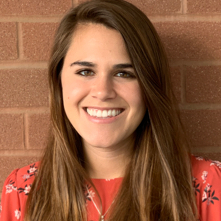Have you recently been diagnosed with an eating disorder? Perhaps you believe you are struggling with disordered eating. Maybe you have thought about reaching out to get support for eating disorder recovery. And are looking to work with an eating disorder registered dietitian nutritionist. This blog will discuss the role of the eating disorder registered dietitian nutritionist in eating disorder recovery. Read on to find out more!
What is disordered eating?
Courage to Nourish is a group practice of eating disorder registered dietitian nutritionists. We define disordered eating as situations where food intake is manipulated. These situtiaons occur in absence of a diagnosed medical condition. In effect, they can increase stress or anxiety in day to day life. You may be thinking this definition is broad. In short, you’re not wrong. Disordered eating and thinking affect people in different ways. Therefore, if it feels like your relationship with food is negatively impacting your life, it’s possible you’re struggling with disordered eating.
How do nutritionists help in recovery from eating disorders?
Registered dietitian nutritionists play a huge role in eating disorder recovery. First, dietitians can support you in untangling the confusing web of nutrition misinformation available. Second, they aid in improving the relationship with the body and exercise. Lastly, a registered dietitian can support you with grocery store exposures, food and restaurant exposures, meal planning, and improving body image.
In our diet culture world, nutrition is confusing. Despite this, a dietitian provides a safe place to discuss how diet culture has impacted your life. In session, you can talk about various food rules and food goals. Additionally, how you would like to progress in having a better relationship with food.
Nutritionists provide education and behavioral counseling
Part of the registered dietitian’s role in eating disorder recovery is to provide nutrition education. Our bodies require food to survive. A dietitian can explain the science behind protein, carbs, and fat. Most importantly, why your body needs to eat a some of everything. Also, an eating disorder nutritionist can provide education about the consequences of restriction – both physiological and psychological. Consequences include increased food thoughts, symptoms of malnutrition, higher risk for bingeing and increased anxiety at meal time.
Strategies for coping during mealtime
An eating disorder nutritionist may also discuss coping strategies at mealtime to ease anxiety surrounding certain foods. Likewise, this may also be a topic discussed in therapy. Have you ever thought, “I know what to do, I just don’t do it.” In fact, many individuals in eating disorder recovery know a lot about nutrition. However, the information they know is jumbled by online misinformation. A registered dietitian can help you sift through that information and discuss coping strategies to talk back to the eating disorder voice.
Plan when challenging foods will be incorporated
It can be helpful to set goals around challenging various fear foods and food rules. You might find it worthwhile to have a conversation with your dietitian about how/why certain food rules developed. For example, you might have a rule that you can’t eat past 8pm. Your dietitian might ask when was the first time you followed this rule? How did this rule come about? Are there any exceptions to the rule? Do other people have to follow this rule? Or just you? Sometimes digging deep into food rules allow us to better understand the eating disorder. Ultimately, giving more fire to your recovery voice to challenge the eating disorder’s twisted, and also unhelpful, logic.
PS: Food rules include any outside source that dictates what you should eat, when you should eat, and how you should eat. The keyword here is “should.” Should often means we don’t *want* to do something, we just feel like we have to or it’s required of us.
Do fear food exposures in session
In addition, it is also important to do some in person exposures with your eating disorder nutritionist. As a result, this will allow you to challenge your eating disorder in a supportive and safe space. However, it can feel overwhelming to have food in session. For this reason, there should be absolutely no pressure to do so.
If you are thinking about challenging fear foods in session, I would recommend discussing a strategy for your session. What meal is it going to be? What is the goal? For instance, to eat 100%, to eat intuitively, to also eat dessert…etc. Is your registered dietitian nutritionist going to eat the same thing as you? How will you eat before and after the session to ensure you are not restricting? All these questions can be answered in session with your eating disorder nutritionist. Be sure to explore those!
Text and email support
At Courage to Nourish, we offer outside support to our clients. For instance, we offer text/email support or communication through the app, Recovery Record. Feeling connected to your team is incredibly important. It is critical to realize that you are not alone in eating disorder recovery.
Visit the grocery store
Shopping for groceries is incredibly stressful! Especially when you’re working to challenge your eating disorder. This is where a grocery store exposure can be helpful. In this exposure, you’ll head to the supermarket with your dietitian and buy groceries for a few days or for a week. During this trip, you can process anxiety in the moment. In effecr, you can break any food rules that typically pop up while at the grocery store and aim to challenge those.
Similarly, you’ll want to plan ahead of time and discuss a strategy for the exposure. You might want to answer some of these questions. What is the goal of this exposure? How long will you spend at the grocery store? Are you buying a full week’s worth of grocery shopping? What are some challenge items you’d like to buy?
Eat at a restaurant
Coupled with grocery store exposure, many clients find it helpful to have support while eating at a restaurant. An eating disorder dietitian can absolutely provide this support. Courage to Nourish are eating disorder dietitians in Maryland, Virginia, and Pennsylvania. We meet with clients regularly at restaurants or have take out food challenges in a session. Having the support of an eating disorder nutritionist in these situations can be extremely helpful! With this, you will have the opportunity to build more confidence in your recovery.
Discuss intuitive eating and mindful eating
Our hope is that all our clients find a peaceful relationship with food and body. Together with being able to eat intuitively and mindfully. A registered dietitian for eating disorders is knowledgeable about the process of intuitive eating. The basic definition of intuitive eating is listening to hunger, fullness and cravings. Therefore, eating disorders disrupt the brain and body from being able to interpret hunger, fullness and cravings. Naturally, recovery is a process of reconnecting with the body’s innate wisdom.
Find Nutritionists Who Help Us Recover From Disordered Eating
Courage to Nourish is a practice of eating disorder registered dietitians. We are located in College Park, Maryland, Columbia, Maryland, and Alexandria, Virginia. We also see clients virtually all across Virginia, Maryland DC, Colorado, and Pennsylvania. Head to this link to learn more about our services. Please contact us to schedule a discovery call. You deserve full recovery and a team you trust.
Also, sign up for our client or clinician newsletter!

Helping my clients cultivate meaningful connections and interests outside of their eating disorder is a true passion of mine. I like to think my clients and I are on a team to navigate recovery. I love working with high school and college students as well as athletes seeking to have a better relationship with exercise. I am a proud anti-diet dietitian and work with my clients through a Health At Every Size © and intuitive eating framework.


